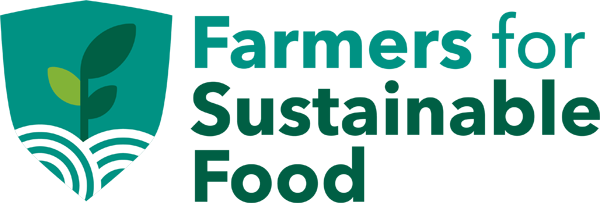
News

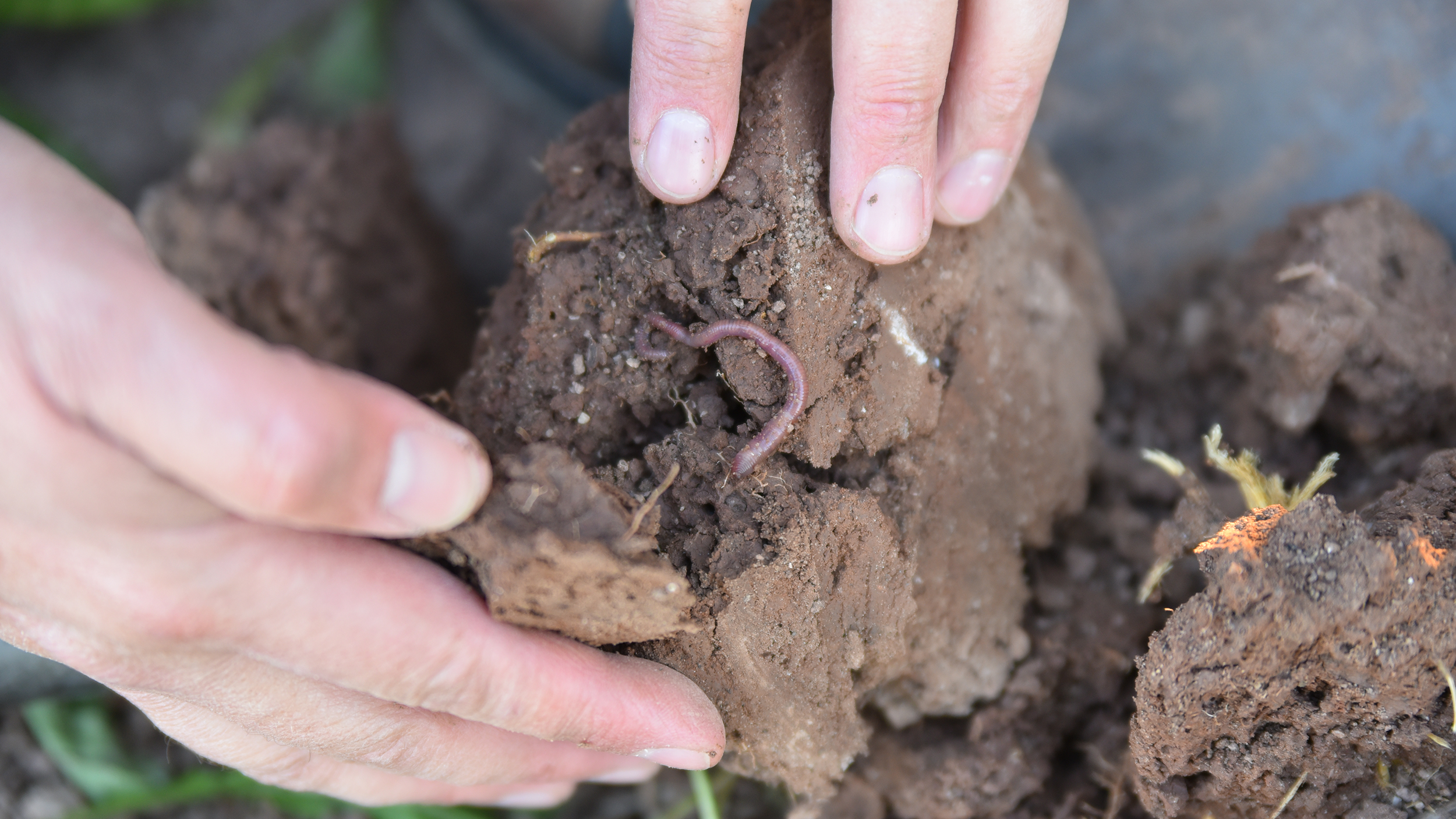
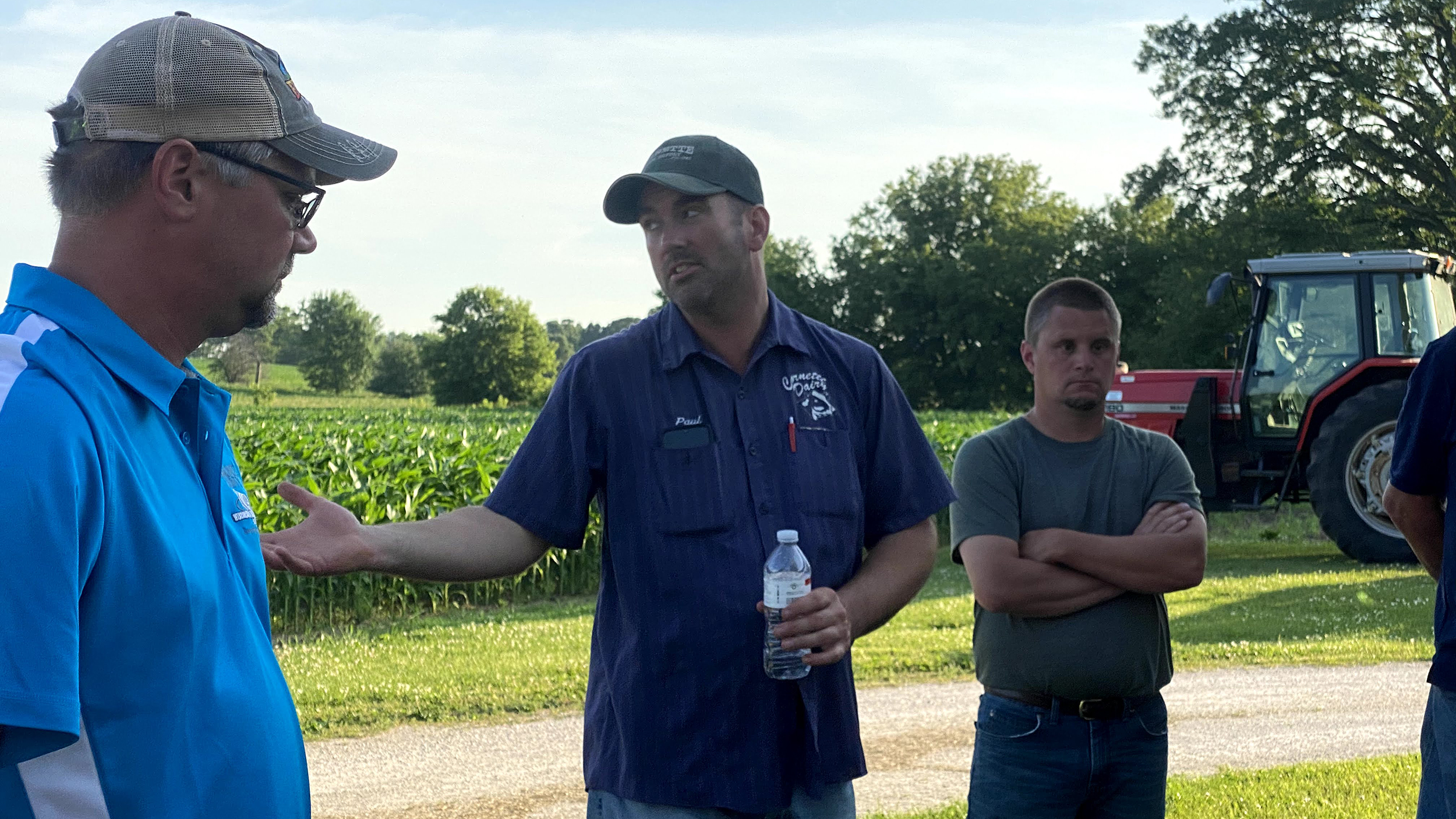
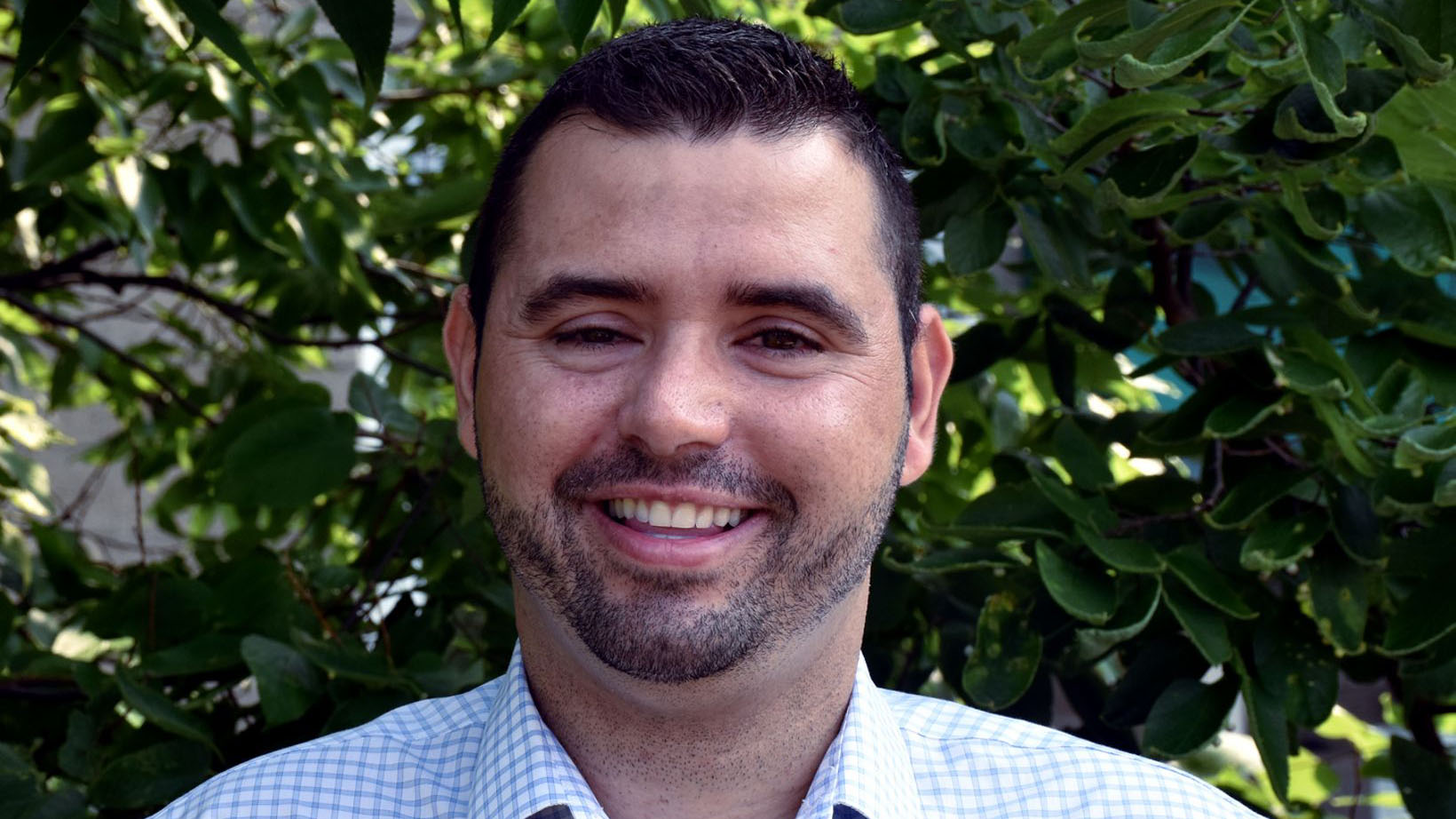
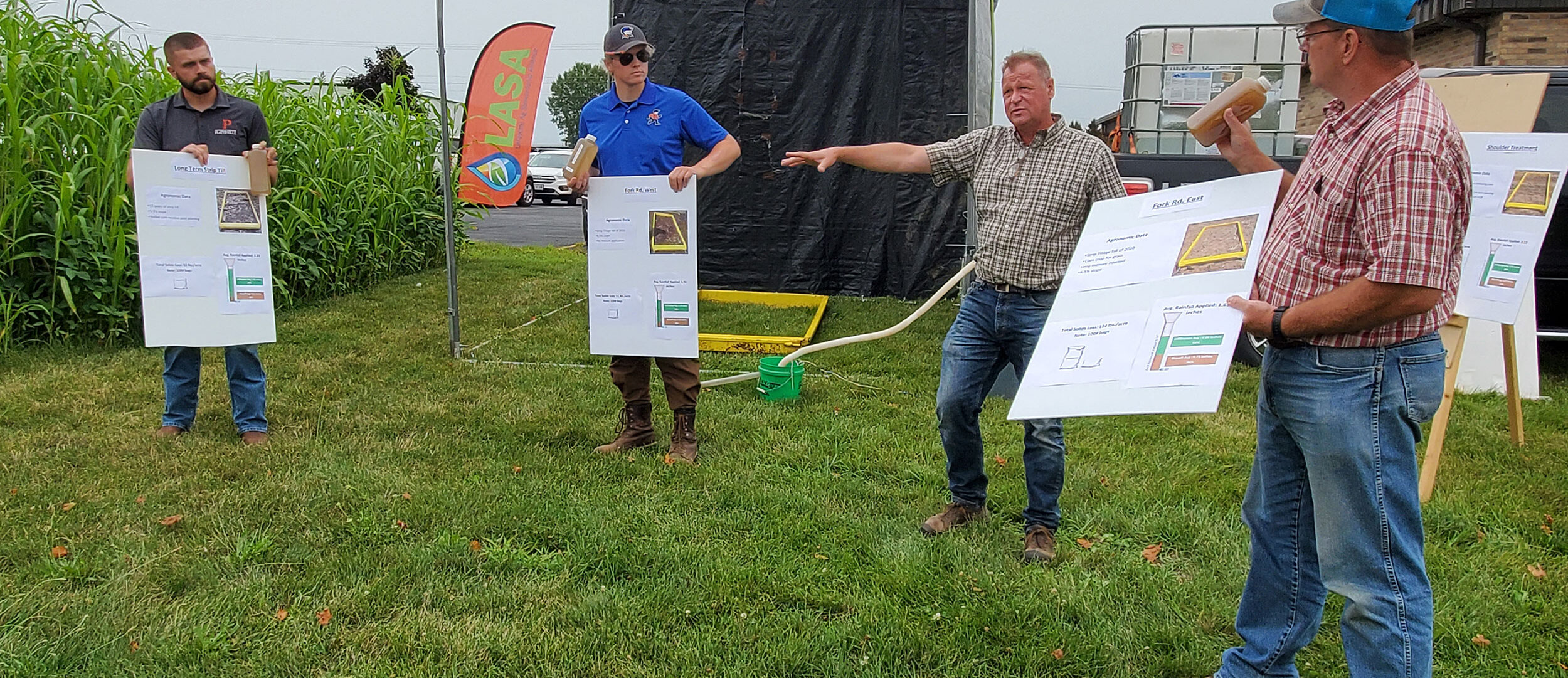
Analysis: Farms in pilot project achieve positive results on national sustainability metrics
Wisconsin initiative measures environmental, financial impact of conservation
GREEN BAY, Wis. — Results from the first year of a nationally recognized farm-level sustainability project in southwestern Wisconsin were released today, and the partners in the initiative are encouraged by what they see.
The dozen participating farms demonstrated that their conservation practices contribute to significant reductions in environmental pollutants reaching streams and rivers.
The analysis is part of a pilot project aligned with a first-of-its-kind framework for sustainability projects that helps farmers determine what conservation practices are most effective for their individual farms and document the environmental and financial effects. The goals: protect the environment, remain profitable and demonstrate to communities, customers and regulators that farmers are taking action on sustainability.
“These positive outcomes reflect a commitment among farmers to push ourselves each day to discover what works best on individual farms and fields, for both the environment and our businesses,” said dairy farmer Jim Winn, a participant in the project and the president of a farmer-led watershed conservation group called Lafayette Ag Stewardship Alliance (LASA) in Lafayette County. “It’s rewarding to see, in concrete terms, that we are making a positive difference.”
The assessment uses nationally accepted metrics from Field to Market: The Alliance for Sustainable Agriculture to address on-farm sustainability indicators, such as greenhouse gas emissions and energy use. A tool called Prioritize, Target and Measure Application (PTMApp) is being used for measuring impact on waterways.
The first-year findings in 2020, based on 2019 data, are detailed in a 141-page report.
Among them:
- On average, farms participating in the pilot project have adopted five conservation practices per field that Field to Market’s Fieldprint Platform recognizes as having a positive impact on sustainability scores.
- Farms with livestock and those that use manure for most crop nutrient needs scored, on average, better than the project benchmark for greenhouse gas emissions and energy use. Manure replaces the use of inorganic forms of nitrogen, which have a higher energy (fossil fuel) cost to produce and ship.
- Existing conservation on the farms is reducing the amount of sediment reaching local streams and rivers by 28 percent.
- Estimates suggest that by adding cover crops to 50 percent of all fields in the project area, additional pollution reductions of 40 percent (sediment), 28 percent (nitrogen) and 23 percent (phosphorus) can be achieved.
“Farmers have long been stewards of the environment, and the increasing adoption of conservation practices is a testament to this,” said Lauren Brey, managing director of Farmers for Sustainable Food, a nonprofit organization of food system partners. “With this project, we now have data to quantify the impact of conservation on farms and to local water resources. These assessments will also guide farmers in management decisions.”
The farmers in the project teamed up with partners in the dairy food supply chain for the initiative. Farmers for Sustainable Food and Grande Cheese Company worked with LASA to develop the project with the Midwest environmental consulting firm Houston Engineering Inc. A host of other stakeholders are contributing to the initiative as well, from environmental groups and foundations to colleges and food retailers.
The Innovation Center for U.S. Dairy recognized the framework and pilot project in June with a national sustainability award for collaboration.
Given the results achieved in year one, the Innovation Center is supporting the extension of the project for two more years as part of the U.S. Dairy Net Zero Initiative (NZI). By 2050, the dairy community has committed to being carbon neutral or better, optimizing water usage while maximizing recycling, and improving water quality by optimizing the use of manure and nutrients. NZI will play a key role in helping to achieve those goals while helping farmers identify economically viable solutions.
“The Innovation Center for U.S. Dairy applauds the work of this pilot sustainability project. As the dairy industry makes progress toward the collective 2050 Environmental Stewardship Goals, on-farm tools and resources are helping farmers understand their environmental footprint and the best, economically viable options for ongoing progress,” said Karen Scanlon, executive vice president of environmental stewardship for the Innovation Center for U.S. Dairy and Dairy Management Inc.
“This farmer-led project demonstrates that whole-farm tools and resources are key to documenting and communicating success. The Innovation Center is excited to join this effort as a partner, and we look forward to its next phase and bringing more learnings to more farmers across the country,” Scanlon said.
In addition to the environmental analysis, the project is assessing return on investment for conservation practices for three of the farms. During the first year of the project, farm business management experts at Southwest Wisconsin Technical College established a baseline of data for each farm.
Brey said more farmers are joining the project and interest is growing for similar initiatives elsewhere: one with an individual farm and on-site cheese plant in Wisconsin, one with another farmer-led watershed conservation group in the state and one with a dairy processor in South Dakota. The project framework is flexible in its design so it can be replicated, and the partners are encouraging others to use it, at no cost.
Winn said he is inspired by the progress and realizes this is a long-term commitment.
“We can be proud of what we have accomplished, but it doesn’t stop here,” he said. “This is about continuous improvement — more innovation, more collaboration, more data — to make sure we are protecting our natural resources and remaining productive.”
Tweet about this:
Farms in nationally recognized pilot #sustainability project see positive impact in first year @LafayetteAg @FarmersForFood @DairyGood @houstoneng @FieldtoMarket #FarmersForSustainableFood
Documents
Pilot milkshed sustainability project Year 1 report
Framework for Farm-Level Sustainability Projects
Images:
Caption: Professor Dennis Busch from the University of Wisconsin-Platteville talks about the results of a field project during a Lafayette Ag Stewardship Alliance field day on July 30 at the U.S. Department of Agriculture Service Center in Darlington, Wis. Busch’s team developed a rainfall simulator to demonstrate the impact of conservation practices on water quality.
Jim Winn mugshot
Farmers for Sustainable Food logo
Lafayette Ag Stewardship Alliance logo
Podcast:
Dairy Stream episode featuring Lauren Brey from Farmers for Sustainable Food and Doug Thomas from Houston Engineering Inc.
About Farmers for Sustainable Food:
Farmers for Sustainable Food is a collaborative, industry-supported effort to promote and support farmer-led solutions to today’s environmental challenges. The nonprofit organization empowers farmers to develop and implement practical, innovative solutions for environmental, economic and social good. More information: www.FarmersForSustainableFood.com
About Lafayette Ag Stewardship Alliance:
Lafayette Ag Stewardship Alliance is a farmer-led non-profit organization with a vision of a community where farmers and friends of agriculture work together to protect and improve water quality and the environment. The group is based in Lafayette County in southwestern Wisconsin. More information: www.lafayetteagstewardship.org.
###
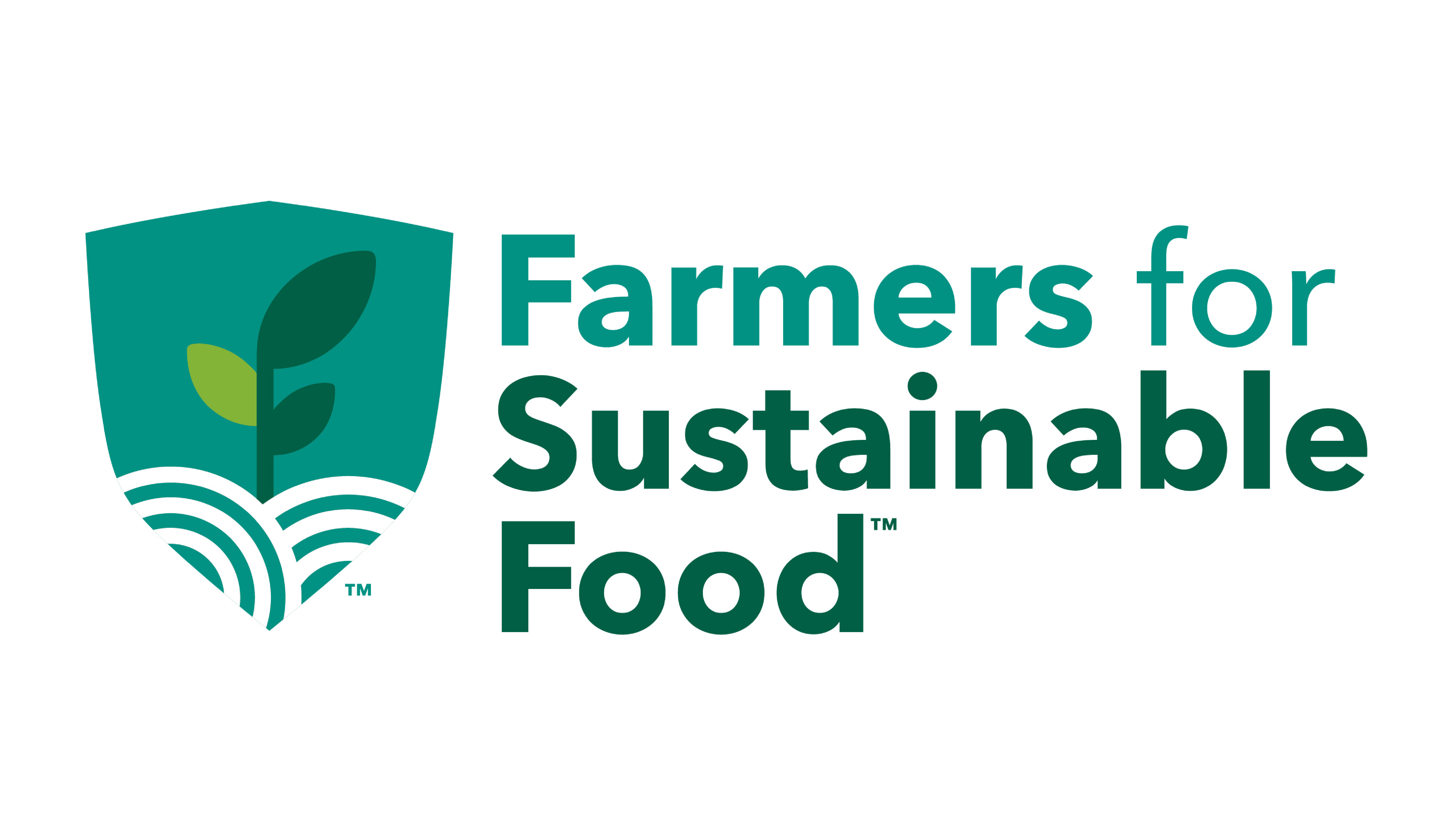
Framework, pilot project earn national dairy sustainability award for collaboration
FOR IMMEDIATE RELEASE
June 14, 2021
Contact: Jamie Mara
(920) 209-3990 | jmara@farmersforsustainablefood.com
Framework, pilot project earn national
dairy sustainability award for collaboration
Innovation Center for U.S. Dairy recognizes supply chain partners in Wisconsin
GREEN BAY, Wis. — A group of Wisconsin farmers and partners in the dairy food supply chain are earning national praise for creating a framework for conservation projects that protect soil and water quality, keep farms financially viable and demonstrate a commitment to sustainability to communities, customers and regulators.
The first-of-its-kind framework and its use in a pilot project in southwestern Wisconsin were recognized today by the Innovation Center for U.S. Dairy with an “Outstanding Supply Chain Collaboration” award. The recipients — Farmers for Sustainable Food, Grande Cheese Company and Lafayette Ag Stewardship Alliance (LASA) — drove development of the project, and other key stakeholders are contributing to the initiative.
The Framework for Farm-Level Sustainability Projects is a handbook to help farmers determine what conservation practices are most useful for their individual farms, document the environmental and financial effects and showcase the value of sustainability throughout the supply chain.
“Customers want assurances that the food they buy is being produced in a way that’s sensitive to the environment,” said Lauren Brey, managing director of Farmers for Sustainable Food, a nonprofit organization of food system partners. “Demonstrating this starts at the farm but also has implications for businesses throughout the dairy supply chain. The widespread input and support for this project, both financially and through direct participation, is truly remarkable.”
Replicable design
The Innovation Center for U.S. Dairy each year recognizes exceptional farms, businesses and partnerships for their socially responsible, economically viable and environmentally sound practices and technologies that have a broad and positive impact. The awards are judged by an independent panel of dairy and conservation experts who consider innovation, scalability and replicability when choosing winners.
The pilot project follows the model of a “milkshed,” which represents the farms and various businesses in a region that furnish dairy foods to customers. The framework is flexible in its design so it can be replicated for projects in other regions, and the partners are encouraging others to use it, at no cost.
Brey said interest already is growing for similar initiatives: one with an individual farm and on-site cheese plant in Wisconsin, one with another farmer-led watershed conservation group in the state and one with a dairy processor in South Dakota.
The pilot project, which involves 12 farms, including eight dairies, wrapped up its first year in 2020, collecting and analyzing farm data from the previous year. Brey expects that the results will be released in a report in July. Current funding for the assessment work will carry the project through 2022. Environmental consulting from Houston Engineering Inc. has been integral to the project.
Farmer commitment
Dairy farmer Jim Winn, president of the farmer-led nonprofit LASA, said the framework and pilot project are well suited for his proactive group, which was founded in 2017 to hone in on water quality issues in a geologically sensitive part of Wisconsin. LASA has 31 member livestock and crop farms, including 17 dairies. Winn’s farm is one of the dozen participants in the project.
“This effort builds on our members’ commitment to environmental stewardship, collaboration and transparency,” Winn said. “The framework gives us a tool to prove to ourselves, our neighbors and those who buy our products that there’s value in being innovative in the field.”
“Having our processor and others in the supply chain behind us, pulling in the same direction, is pretty powerful,” he said.
That’s where true success lies for sustainability, said Greg Siegenthaler, vice president of milk marketing and supply chain at Grande, an Italian cheese manufacturer in southeastern Wisconsin.
“As with this project, true sustainability efforts will only be realized if the work is done in partnership across our industry and throughout the supply chain,” Siegenthaler said. “In order to really move the needle and see ongoing success around sustainability, we must continue to engage all partners in the process, from farmer-led initiatives that result in greater results for both environmental sustainability and farm financial viability, to an ongoing commitment from processors and food manufacturers to engage in the conversation and partner on long-term solutions.”
Broad support
The Nature Conservancy, which closely supports farmer-led conservation projects in the state, helped author the framework.
“The work that LASA farmers have been doing since 2017 to implement soil health practices and track their outcomes shows that agriculture can be part of the solution to some of our biggest challenges, from water quality to climate change,” said Steve Richter, agriculture strategies director for The Nature Conservancy in Wisconsin. “Through this pilot project, they are building on those efforts to leverage their learning beyond their county to the rest of the state. We’re excited to support this collaborative effort to give more farmers the tools they need to protect our waters, capture carbon and keep their farms profitable.”
Nestlé, the world’s largest food and beverage company, is supporting the pilot project as part of its efforts to partner with farmers, suppliers and industry experts to reduce the carbon footprint on farms, an essential element of its strategy to achieve net zero emissions by 2050.
“Dairy is one of Nestlé’s most important ingredients, and this project demonstrates how collaboration among partners across the supply chain — from farm to fork — can make a difference in creating a more sustainable dairy industry,” said Emily Johannes, senior manager for sustainable sourcing at Nestlé USA. “This farmer-led project shows great promise for protecting soil health and water quality while helping farmer livelihoods, which are all critically important priorities for Nestlé and the industry at large.”
A host of other groups and businesses also have embraced the initiative through direct participation or funding: Compeer Financial Fund for Rural America; Dairy Farmers of Wisconsin; GPS Dairy Consulting; Innovation Center for U.S. Dairy; Professional Dairy Producers Foundation; Reddy Ag Service/Ross Soil Services; Sally Mead Hands Foundation; Southwest Wisconsin Technical College; University of Wisconsin Extension; UW Center for Integrated Pest and Crop Management; Wisconsin Corn Growers Association; and the Wisconsin Department of Agriculture, Trade and Consumer Protection.
Document
Framework for Farm-Level Sustainability Projects
Photos:
Winn and Siegenthaler in field at Cottonwood Dairy
Winn and Siegenthaler in barn at Cottonwood Dairy
Logos
Lafayette Ag Stewardship Alliance
Tweet about this:
Framework for farm sustainability projects @FarmersForFood, Grande Cheese Company and @LafayetteAg draws national praise from Innovation Center for U.S. Dairy for supply chain partnership STORY LINK @NatureAg @Nestle @NestleUSA @ #FarmersForSustainableFood
About Farmers for Sustainable Food:
Farmers for Sustainable Food is a collaborative, industry-supported effort to promote and support farmer-led solutions to today’s environmental challenges. The nonprofit organization empowers farmers to develop and implement practical, innovative solutions for environmental, economic and social good. More information: www.FarmersForSustainableFood.com
About Grande Cheese Company:
Grande Cheese Company, located in southeastern Wisconsin, is a premier manufacturer of fine Italian cheeses for independent operators of pizzerias and Italian restaurants across the country. Since the company began in 1941, it has been committed to sourcing the highest quality milk in the market by way of highly dedicated producers committed to continuous improvement, innovation and reciprocal partnership. Grande believes that continuously sourcing the greatest milk supply and producing trademark quality cheese is possible only through the ongoing investment in its operations, the communities where they operate, and most importantly, its associates. More information: www.grande.com
About Lafayette Ag Stewardship Alliance:
Lafayette Ag Stewardship Alliance is a farmer-led non-profit organization with a vision of a community where farmers and friends of agriculture work together to protect and improve water quality and the environment. The group is based in Lafayette County in southwestern Wisconsin. More information: www.lafayetteagstewardship.org.
###


Farmers for Sustainable Food marks transformation of conservation alliance
FOR IMMEDIATE RELEASE
May 11, 2021
Contact: Jamie Mara
(920) 209-3990 | jmara@voiceofmilk.com
Farmers for Sustainable Food marks transformation of conservation alliance
Newly named group reaches next level in scope, innovation, partners
GREEN BAY, Wis. — An alliance created five years ago to support and promote farmers in their conservation efforts has reached a new level, with a broader focus, more innovative projects and an increasingly diverse set of partners.
Today, the group, formed in 2016 as the Dairy Strong Sustainability Alliance, announced its transformation into Farmers for Sustainable Food, a nonprofit organization that provides resources, advocacy, support and empowerment for farmers who are innovating and demonstrating sustainable farming practices.
“Our vision is a sustainable food system in which farmers, their communities and the environment thrive,” said Todd Doornink, president of Farmers for Sustainable Food and a dairy farmer in northwestern Wisconsin. “Our focus is on uniting stakeholders to collaborate across organizational lines, inspiring farmers to be leaders of change and empowering our partners to meet their goals.”
The Dairy Business Association and The Nature Conservancy originally organized the alliance in Wisconsin around the goal of helping dairy farmers make tangible improvements to the environment and other aspects of their farms. Since then, additional partners have come aboard representing various parts of the food supply chain, from individual farms and agricultural groups to food processors and food companies. And the group is facilitating greater opportunities to achieve environmental goals and promote progress in Wisconsin and elsewhere in the Upper Midwest.
“Our momentum has only increased,” said Lauren Brey, who serves as coordinator for Farmers for Sustainable Food.
“During the past year, especially, the organization’s work has become even more innovative, collaborative and widespread — for example, a number of projects aimed at measuring the impact of on-farm conservation practices. The work is growing beyond dairy and beyond Wisconsin as well, including with farmers and processors in Minnesota and South Dakota,” Brey said.
Steve Richter, agricultural strategies director at The Nature Conservancy in Wisconsin, said partnering five years ago with the now Farmers for Sustainable Food was a natural extension of his organization’s focus on projects at the farm level.
“Together, we have worked to support farmer-led watershed groups who are learning how to use and maximize the benefits of conservation practices, track their results and share what they learn with others,” Richter said.
“Farmers for Sustainable Food’s connections with stakeholders throughout the agriculture supply chain, their strong relationships with farmers, and their ability to create well-structured and well-run projects have complemented our efforts to provide science, technical support and funding to help farmers be successful,” he said.
Brey said Farmers for Sustainable Food closely supports six farmer-led watershed conservation groups encompassing 211 farms, nearly 300,000 acres and 212,000 cows, hogs and other livestock. That support ranges from administration and communication to strategic services and grant applications.
The organization and its partners are also developing on-farm initiatives to test ways of measuring sustainability and documenting the impact of conservation practices, both environmentally and financially.
Grande Cheese, a Wisconsin dairy processor, participates in that work, which reflects two of the company’s pillars of corporate responsibility — environmental awareness and business sustainability, said Greg Siegenthaler, Grande’s vice president of milk marketing and supply chain.
“It is important to Grande to be involved in these creative and progressive sustainability efforts,” Siegenthaler said. “We are proud of our partnership with Farmers for Sustainable Food and are committed to continuing to advance sustainability efforts across Wisconsin.”
Doornink, the group’s president, said a key strength of Farmers for Sustainable Food is the collective commitment throughout the supply chain.
“By working together, we open up resources and vastly expand our potential to make meaningful change,” Doornink said. “By being on the forefront of change, we can ensure a future that benefits the food system and our communities and ensures long-term prosperity.”
Images:
Farmers for Sustainable Food logo
Tweet about this:
Newly named Farmers for Sustainable Food marks transformation for growing conservation alliance PRESS RELEASE LINK #FarmersForSustainableFood
Social media channels
About Farmers for Sustainable Food:
Farmers for Sustainable Food is a collaborative, industry-supported effort to promote and support farmer-led solutions to today’s environmental challenges. The nonprofit organization empowers farmers to develop and implement practical, innovative solutions for environmental, economic and social good. More information: www.FarmersForSustainableFood.com
###
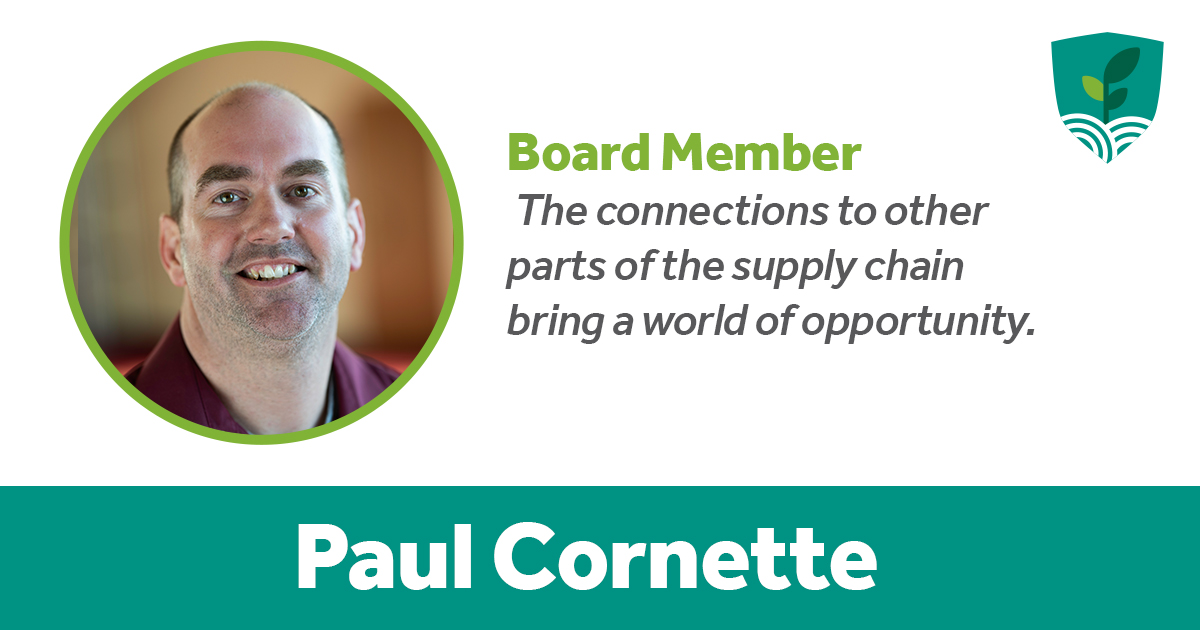
Paul Cornette
Why be part of FSF?
- As a member of Peninsula Pride Farms, we’ve been able to influence and improve farming practices and community perceptions of agriculture tremendously. As the group has grown, we’ve relied on FSF more, not less. The outstanding staff has brought management and communications skills which has allowed us as farmers to focus on innovation. We have a better story to tell and a bigger, better platform to tell it. The wide reach of FSF throughout the supply chain has helped Peninsula Pride generate new financial support and put us in touch with experts who can help us make continual progress and measure improved outcomes. We wouldn’t be where we are today without FSF.
Why should others join?
- If you’re a member of a farmer-led conservation group, it really is a no brainer. FSF will empower you to improve by providing human resources, advice, and support. They are able to serve as a connection between various conservation groups to share experiences and offer direction. The connections to other parts of the supply chain will bring a world of opportunity. This is true even if you are not part of a farm conservation group. I would encourage any individual farm or ag business to join and be a part of the change as ag takes the lead on sustainability through progress.
